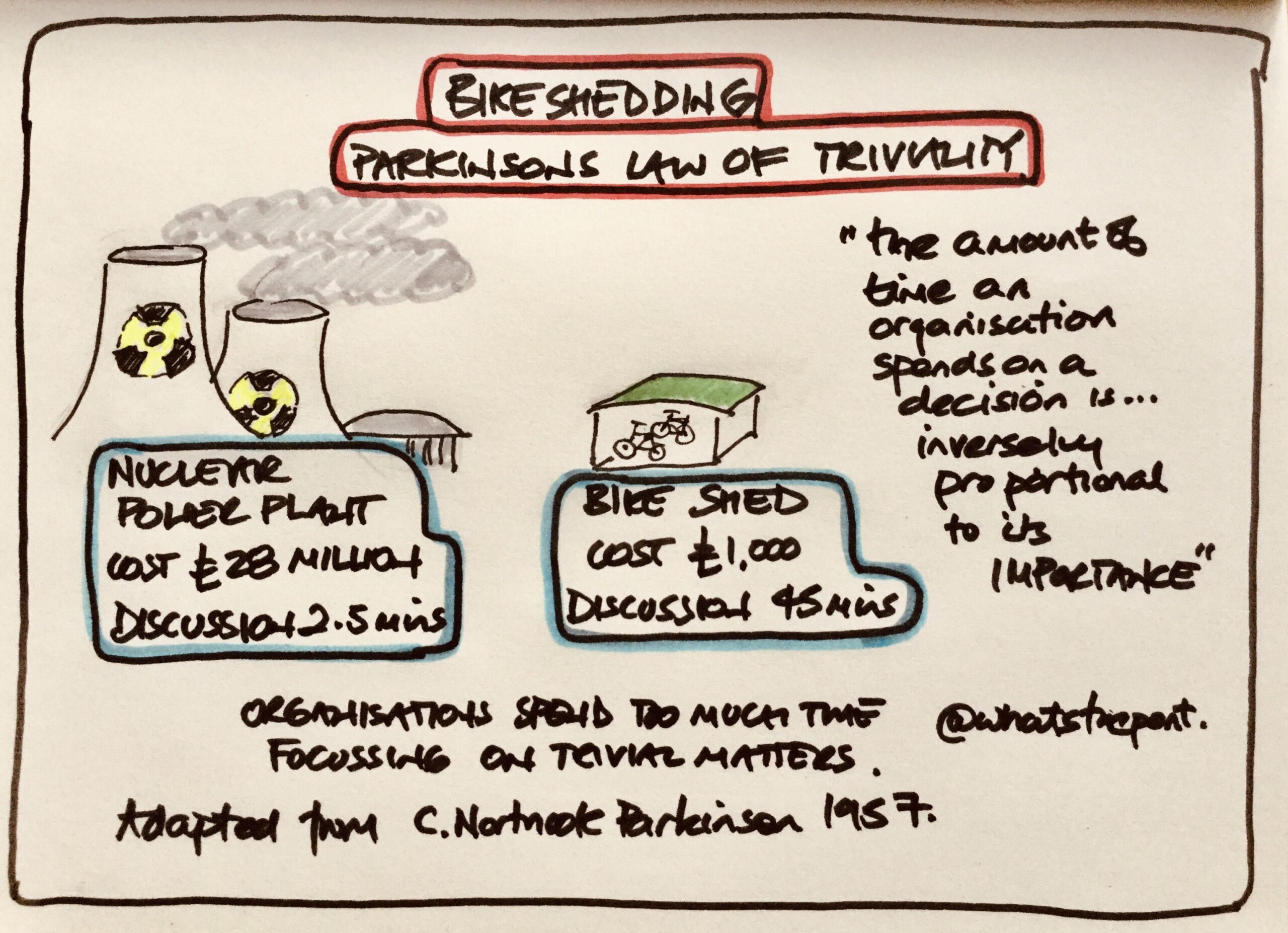The Law of Triviality (Bike Shedding): Focusing on the Insignificant
The Law of Triviality, also known as Bike Shedding or Parkinson’s Law of Triviality, refers to the human tendency to spend a disproportionate amount of time and effort discussing or debating trivial or less important matters, while neglecting or underestimating more complex or critical issues.
Examples of the Law of Triviality (Bike Shedding):
Meetings: During a project meeting, a significant portion of the discussion is dedicated to choosing the color of the office’s bike shed, while essential project components receive less attention.
Political Debates: In a political debate, the discussion may veer off into heated arguments about a minor gaffe by one candidate, overshadowing substantial policy issues.
Family Decision Making: When a family plans a vacation, they may spend hours debating the choice of a restaurant for one evening, yet give limited thought to more critical aspects like accommodation and travel arrangements.
The Law of Triviality (Bike Shedding) in Action:
Imagine a scenario in a workplace where a committee is tasked with deciding on a multi-million-dollar project’s budget allocation. While the budget for the significant aspects of the project is only briefly discussed, there is extensive debate about how much money should be spent on the new office bike shed’s design and color. The committee members find it easier to focus on the trivial issue of the bike shed, as it requires less expertise and generates less controversy.
Solutions to Address the Law of Triviality (Bike Shedding):
Prioritize and Set Objectives: Prioritize discussions and decision-making based on importance and overall objectives. Ensure that significant issues receive the attention they deserve.
Limit Discussion Time: Set time limits for discussions of less critical matters to prevent over-investment in trivial details.
Focus on Expertise: Allocate more time to the discussion of complex and specialized topics, allowing experts to provide insight and guidance.
Awareness and Self-Reflection: Encourage individuals to be aware of their own tendencies to focus on trivial matters and engage in self-reflection to redirect their focus toward more important issues.
In conclusion, the Law of Triviality (Bike Shedding) is a cognitive bias that leads people to devote excessive time and energy to insignificant matters while neglecting more important ones. To mitigate the impact of this bias, it is essential to prioritize discussions, set objectives, limit discussion time for trivial issues, focus on expertise, and promote awareness and self-reflection. By doing so, individuals and organizations can make more effective decisions and allocate their resources more wisely.
